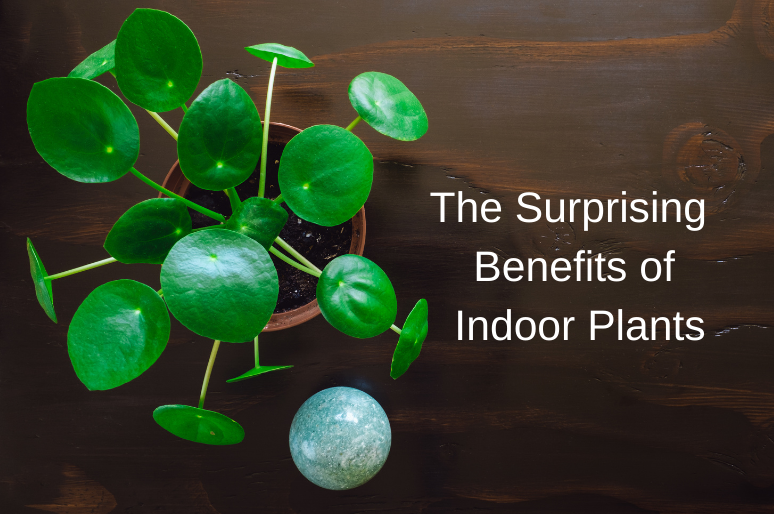Indoor Plants Reap Big Benefits

There are great reasons to have house plants — beauty, color, warmth — but there are also scientifically proven benefits you reap from incorporating plants into your home.
According to WebMD, plants act as natural filters to catch allergens. Colorful plants can lift your mood and add moisture to the air during the dry, winter months. Plants serve as natural air-purifiers and varieties like mint, peppermint, and basil aid in digestion. Aloe plants are perfect for first aid on burns, small cuts and scrapes. Plants give off oxygen that provides a better night’s sleep, and scented plants like lavender may calm or lower anxiety.
Researchers continue to find benefits from adding house plants to increase attention span, aid in depression and increase overall well-being.
With all these advantages, where do you begin? I may not have a green thumb, but I look for “survivor” plants that can make it without a lot of nurturing. This is a shortlist of indoor plants that will not only brighten a room but help you breathe and feel better in your own home.
Calathea Peacock, also known as “Cathedral Windows” is native to Brazil.
- Likes
low-lit areas.
- Includes many varieties with attractive foliage.
- Likes humidity! Try sitting the plant on an indoor pebble tray.
Chinese Pilea, also known as “missionary plant” because it grows “pups” to share. It is native to the Yunnan and Sichuan provinces of Southern China.
- Likes
bright light but not direct sunlight.
- Boasts bright green, pancake-shaped leaves.
- The best way to find one is from a friend or online.
Jade, also known as “lucky plant” is native to South Africa and Mozambique.
- Simple
and pretty and easy to care for.
- Likes sun, so a great location is near a window.
- There are many varieties, and Jade does best without drying out completely or overwatering.
Monstera, also known as “Swiss Cheese” is native to the tropical forests of Mexico and Panama.
- Famous
for the natural leaf-holes that led to the nickname, Swiss Cheese.
- Thrives in bright to medium light, but not direct sun.
- Water every 1-2 weeks allowing the soil to dry out between waterings.
Rubber plants are native to South and Southeast Asia.
- They
are good for your home. Large leaves absorb and break down airborne chemicals
and bacteria making them harmless for your health.
- Easy to care for and prefer bright, indirect light that isn’t too hot.
- Keep it near a window with a sheer curtain for the right amount of sunlight.
ZZ, also called Zanzibar Gem, is native to Kenya and South Africa.
- Wide,
attractive, smooth and waxy leaves reflect sunlight and brighten a room.
- Drought tolerant, so only water when fully dry.
- Likes low to bright indirect light.
- Keep away from pets and curious children, and wash hands after handling to avoid skin irritation.
As you look forward to Springtime planting that reaps year-round benefits, don’t forget the insurance benefits that give you year-round rewards with just a little effort.
Free COVID-19 vaccines, Over-The-Counter (OTC) benefits, and rewards for completing preventative checklists are available throughout the year. If you aren’t sure what your plan provides, call your health agent today.
If you need insurance, there is no fee to talk to a health advisor at Insurance Group of the Ozarks. We guide you through the process and help you find the best plan for you. Call today or request a call back at 417-725-1131.
Share the post "Indoor Plants Reap Big Benefits"
